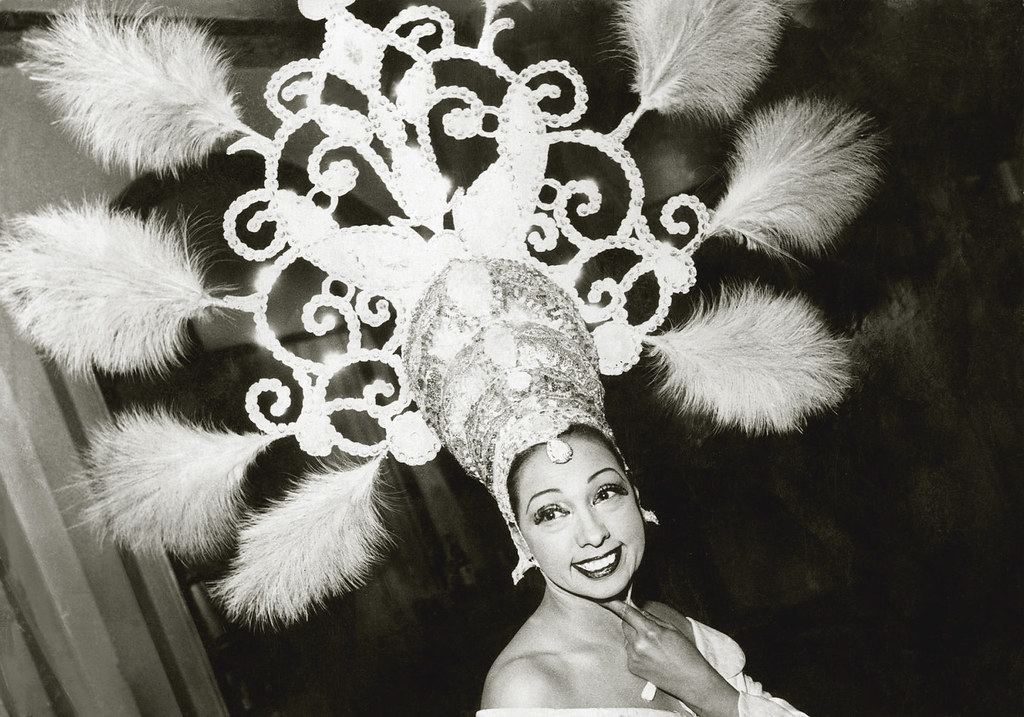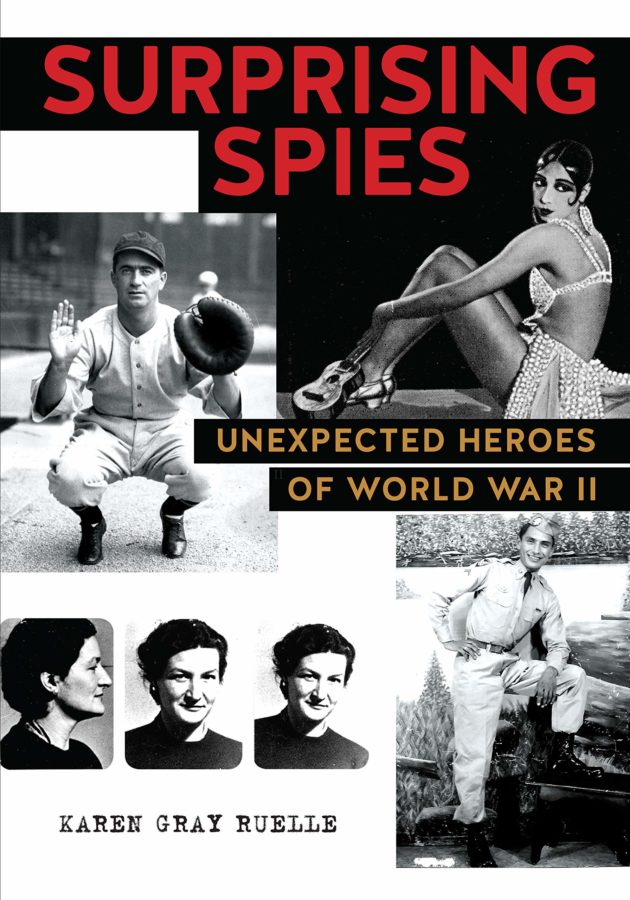
When Josephine Baker Spied Against the Nazis
As Karen Gray Ruelle ably proves in Surprising Spies: Unexpected Heroes of World War II, there was no one-size-fits all template for the individuals who risked their lives thwart the Nazis. Ruelle talks to Fiction Editor Yona Zeldis McDonough about the many surprises uncovered by her research, including the fact that Josephine Baker—a woman of color and expat who took Paris by storm—had converted to Judaism.
YZM: How did you come to write the book—why WWII spies and why now?
KGR: I’ve always been obsessed with spies. As a child, I was a big fan of The Avengers and Get Smart, and I even fantasized about becoming a spy, myself. That never happened. Instead, I chose to write about them. Right now, I’m working on a novel for adults that has some espionage elements. But I also wanted to write about spies for kids. Several of my nonfiction children’s books, written with co-author Deborah Durland DeSaix, include stories about or references to espionage. I thought it would be exciting to write a whole book about surprising spies. Spies readers might not have heard of, or spies who were known for something completely different, so you would be surprised to learn that they were also spies. That’s how Surprising Spies was born.

YZM: Had you known about Josephine Baker’s being Jewish before you started?
KGR: Before I wrote my book, I had no idea that Josephine Baker was Jewish. I knew who she was. I knew about the famous banana skirt. And then I discovered that she had worked for the French Resistance. It was exciting doing the research and finding out just how daring and courageous she was. When I found out that she had married a Jewish man (Jean Lion, her third husband) and converted, I realized just how much more danger she was in. As a Jewish Black woman, she was at increased risk of persecution by the Nazis. She didn’t have to convert, but she chose to do so. Was it for love? Perhaps. Or perhaps she was simply taking a stand—a very dangerous stand! Maybe both. We’ll never know for sure.
YZM: What was the most surprising thing you found out about Baker?
KGR: I loved learning about her infatuation with animals. She had dozens of pets—exotic and more commonplace. She brought many of them along with her when she traveled. There are descriptions of her berth or hotel room being filled with animals. She had a pet cheetah named Chiquita that she walked through Paris on a diamond-studded leash. She dressed her pet chimpanzee, Ethel, in a diamond choker and bracelets, and she wrapped her pet snake, Kiki, around her neck like a collar.
YZM: What was her most dangerous mission?
KGR: Baker went on many dangerous missions. She would gather information and then secretly transport it to her handler, Jacques Abtey. He wrote a memoir in which he described working with her. It makes for great reading! I think that transporting all that secret information was the riskiest thing she did. Here was this world-famous, extremely visible diva, everyone scrambling to get her autograph or photo, and she managed to smuggle top-secret data, right before the eyes of customs people, her fans and the enemy. And believe me, all eyes were definitely on Josephine Baker! She would write secret notes detailing all she discovered and pin them to her underwear; or write them on her arms, under her sleeves or in invisible ink along the margins of her sheet music. And all the while, she was confident that she could keep the information hidden and safe.
YZM: Tell us about Baker’s “Rainbow Tribe.”
KGR: Baker loved children and desperately wanted to have a family but was unable to conceive due to a botched surgery and subsequent infection. So she and her fourth husband, Jo Bouillon, decided to adopt a dozen children of different nationalities and races to create their “Rainbow Tribe.” Their idea was to show that all races could live together in peace. Unfortunately, Baker was an undependable parent who quickly spent all the money she had, and her family life soon became unstable and unhealthy. She and her husband divorced, and she lost her home. She ended up relying on others to help out and it doesn’t seem to have been the happy family and home she had hoped for.
YZM: Is there anything else you want us to know about her?
KGR: Josephine Baker was definitely one of a kind! She was truly dedicated to her mission to promote civil rights and equality. When she performed for the troops, she demanded that the audience be integrated. She worked tirelessly to fight prejudice. The US was a hostile place for a woman of color. Pre-WWII France was much more open and welcoming to Blacks and it was there that she found her real home. She suffered a lot during her life, from ill health, poverty and prejudice. Her later years were difficult. But when she was 68 years old, she made a grand stage comeback. After opening night, she suffered a stroke in bed, surrounded by the great reviews of her stage revival. I like to think she died happy.
josephine baker, headress | Allison Marchant | Flickr


